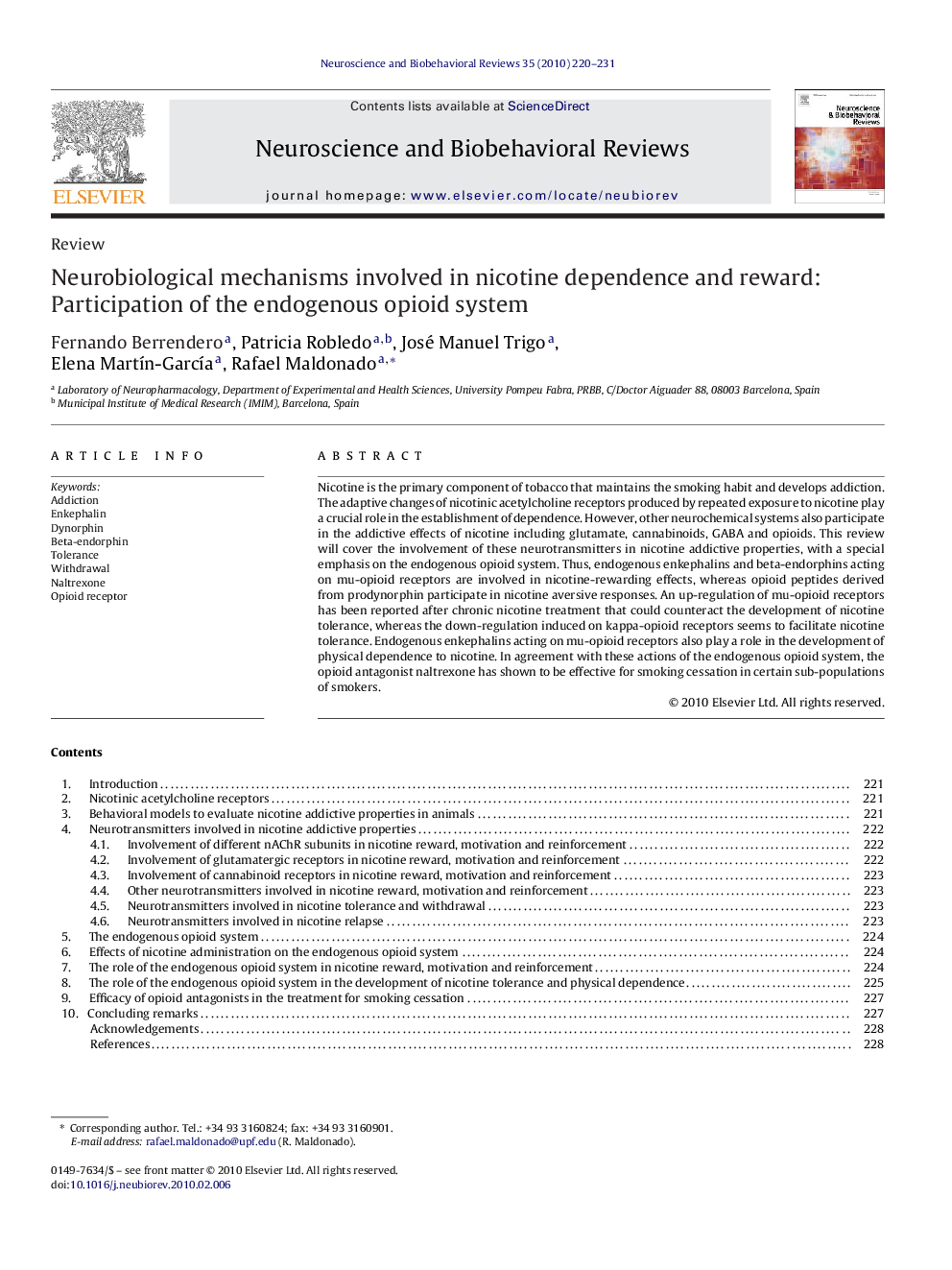| کد مقاله | کد نشریه | سال انتشار | مقاله انگلیسی | نسخه تمام متن |
|---|---|---|---|---|
| 938063 | 924575 | 2010 | 12 صفحه PDF | دانلود رایگان |

Nicotine is the primary component of tobacco that maintains the smoking habit and develops addiction. The adaptive changes of nicotinic acetylcholine receptors produced by repeated exposure to nicotine play a crucial role in the establishment of dependence. However, other neurochemical systems also participate in the addictive effects of nicotine including glutamate, cannabinoids, GABA and opioids. This review will cover the involvement of these neurotransmitters in nicotine addictive properties, with a special emphasis on the endogenous opioid system. Thus, endogenous enkephalins and beta-endorphins acting on mu-opioid receptors are involved in nicotine-rewarding effects, whereas opioid peptides derived from prodynorphin participate in nicotine aversive responses. An up-regulation of mu-opioid receptors has been reported after chronic nicotine treatment that could counteract the development of nicotine tolerance, whereas the down-regulation induced on kappa-opioid receptors seems to facilitate nicotine tolerance. Endogenous enkephalins acting on mu-opioid receptors also play a role in the development of physical dependence to nicotine. In agreement with these actions of the endogenous opioid system, the opioid antagonist naltrexone has shown to be effective for smoking cessation in certain sub-populations of smokers.
Journal: Neuroscience & Biobehavioral Reviews - Volume 35, Issue 2, November 2010, Pages 220–231